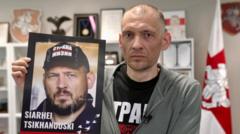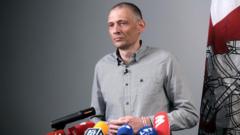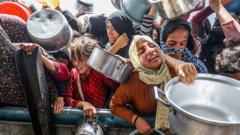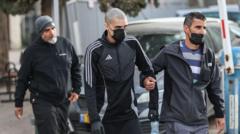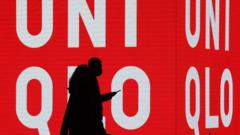After five years of imprisonment in a Beijing facility, Australian Matthew Radalj exposes the terrifying conditions of incarceration in China, detailing forced labor, psychological manipulation, and a significant struggle for survival since his release.
An Australian's Struggle for Survival in a Chinese Prison

An Australian's Struggle for Survival in a Chinese Prison
Matthew Radalj's harrowing experience in Beijing's No. 2 prison sheds light on the brutal realities faced by international prisoners in China.
During five devastating years inside Beijing's No. 2 prison, Australian citizen Matthew Radalj faced the extreme adversities of incarceration, which he now bravely recounts. Living in a small, squalid cell with several other inmates, Radalj's days were marked by vulnerability and despair, compounded by relentless sleep deprivation, unsanitary conditions, and forced labor.
After his arrest in January 2020, following a dispute in an electronics market, Radalj claims he was wrongly convicted of robbery, coerced into signing a false confession, and trapped within a stifling legal system notorious for its high conviction rates. His four-year sentence was a grim reality, made harsher by the gruesome conditions of the detention center, where he was subjugated to physical punishment and a disheartening lack of basic hygiene.
As Radalj adjusted to the prison's oppressive environment, he was subjected to a "good behaviour points system" that ultimately served as a psychological trap. Inmates were enticed to accumulate points through studying Communist Party literature and work in a prison factory. However, this was often manipulated by guards to ensure that any hope of reduced sentences remained unattainable, crushing spirits instead of uplifting them.
The food rations were flagged as another critical means of control, with meals consisting largely of vile cabbage and plain bread, leading to malnutrition among the prisoners. Radalj also witnessed the political exploitation of prison life, where hunger and power struggles among inmates, especially concerning who received better sustenance, showcased the underlying desperation in the facility.
His time in solitary confinement led to bouts of insanity as he struggled with extreme isolation, lack of sunlight, and minimal food. Still, Radalj held onto grim hope by secretly documenting his experiences, aided by North Korean fellow prisoners. His eventual plan to smuggle his notes out became a critical act of resistance against the oppressive regime.
Emerging from the ordeal with a resolve to assist fellow inmates, Radalj returned to Australia where he was greeted with a mix of joy and trauma. Now married, he continues to advocate for the imprisoned, emphasizing the deep scars left by his experience while embracing the simple pleasures of liberty. He expresses profound gratitude for his freedom while feeling an unwavering responsibility to those he left behind, channeling his reformed life into efforts for better treatment for current inmates still enduring similar hardships.


